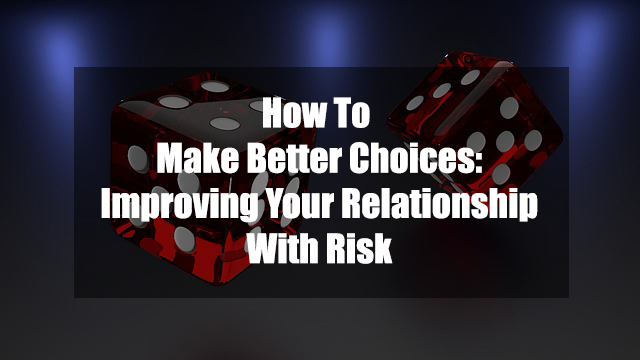Ever wonder what makes the difference between winners, losers, and the herd of mediocrity?
It comes down to the decisions they make.
One key aspect of this decision making is their relationship with (and understanding of) RISK.
For many, when they hear the word “risk”, they think “danger”.
But this isn’t always the case…
Risk is woven into the nature of being alive.
(Just by waking up today you’re taking risk).
It’s simply any decision where the outcome isn’t 100% certain.
And it’s part of the game we’re all playing.
However, all risk is NOT equal.
And your ability to run the numbers on this will make or break you.
Recognizing the difference between a dumb risk and a smart one is one of the most important abilities you can have.
Here’s how it works:
How LIFE FAILURES Approach Risk
The people who fail the hardest in life make decisions with unlimited downside and limited (or non-existent) upside.
They have a strong appetite for risk, but it’s the wrong kind of risk.
This group focuses on the SHORTEST time horizon.
Examples include:
- Hard drugs
- Consumer debt
- Gambling with no edge
- Driving under the influence
- Marrying the village bicycle
- Doing reckless physical stunts
These moves put a lot on the line with nothing positive to be gained.
At best, they give you a few thrills.
At worst, they can take you out of the game entirely.
While you can get away with these decisions in the short term, eventually the law of numbers will catch up with you.
(And you will step on a nuclear land mine).
How LIFE MIDWITS Approach Risk
The main focus of midwits is SAFETY.
They focus on a MEDIUM time horizon.
Their aim is to minimize risk as much as possible.
Never failed. Yet never really won either.
While this helps them avoid extreme downsides, it never puts them into position to hit extreme upsides either.
(Chokes off all chances of anything amazing happening).
Examples include:
- Herd mentality
- Fear of the unknown
- Dead-end wagie jobs
- “Happy wife happy life”
They never “go off the rails”, but they also never step into payoff space.
How LIFE WINNERS Approach Risk
Life winners spend their time in PAYOFF SPACE.
What is payoff space?
This is a lane / vehicle where they can potentially win big.
(Even if they have to take occasional L’s).
So how do you get there?
You enter “payoff space” by making moves with unlimited upside and limited downside.
This is a move where the outcome isn’t 100% certain, but on a long enough time horizon leads to a positive outcome.
(Puts you in a better position / proximity to win).
This group makes decisions on a LONG time horizon.
Examples include:
- Building assets
- Creating content
- Starting a website
- Approaching new people
- Sending DM’s / messages
- Performance based income
They have the healthiest relationship with risk.
Conclusion
Your relationship with risk determines your long-term outcome in life.
And yes, this applies to all important categories:
- Lifestyle
- Social life
- Money
- Girls
- etc
The point isn’t to avoid risk, it’s to identify and manage it for better results.
(Mastering multi-order outcomes).
You see, everything in life has its pros and cons.
But, when you make more decisions with unlimited upside + limited downside, you WIN.
To do this, you have to develop a better relationship with / perception of “the unseen”.
This is the biggest difference between:
- Life losers
- Life midwits
- Life winners
And a key aspect of this is the TIME HORIZON they make decisions on.
- Life losers = instant gratification
- Life midwits = medium
- Life winners = long time horizon
When you observe life through this “lens” of weighing bets, the correct choices become clear.
From there, all you have to do is step onto the path those choices illuminate.
You May Also Like:
My name is Mister Infinite. I've written 300+ articles for people who want more out of life. Within this website you will find the motivation and action steps to live a better lifestyle.

